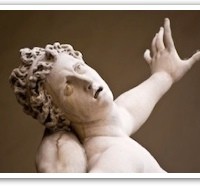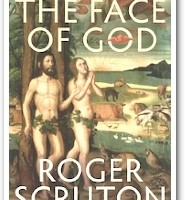Whose Rights? The Paradox of Moral Relativism, by Edward P. Sri
Whose rights are protected in a relativistic culture?
It is precisely on this point that relativistic societies face a serious dilemma: How does a community arbitrate various individuals’ competing interests? There is much rhetoric in our modern world about protecting human rights and every individual’s freedom, but what if one person or group wants to do something that is directly opposed to someone else’s values or interests? How does a society decide whose “right” or whose “freedom of choice” will be protected?
Take, for instance, the following moral debates in our own times:
Does a child in the womb have the right to life? Or does a mother have a right to abort her baby? Does a business owner have the right to say publicly that he believes marriage is between one man and one woman? Or does a homosexual person in the community have the right to be protected from such public statements which he or she might consider to be “hate speech”? Do women have the right to receive contraceptives through their health insurance, even if they work for the Catholic Church? Or does the Church have the right to adhere to its moral teachings and not provide contraception to its employees?
How does a relativistic society determine whose freedom of choice will be safeguarded and whose will be limited? In a culture that has no reference to a common good — that has no shared vision about the good life for man — these questions are not resolved in any fair way. They remain constantly up for debate and completely up for grabs. Lobbyists maneuver in Washington. Groups organize to protest. Strategists try to sway public opinion. Compromises are made and some will have to give up more than others. But one thing is clear in the process: not everyone’s “rights” are protected. In the end, the very determination of what a human right is and whose rights are safeguarded is completely arbitrary.
Read the complete article in Catholic Education
Catholic Social Teaching: It’s Time to End the Misrepresentations, by Anthony Esolen
Imagine someone appealing to Lord Baden-Powell, founder of the Boy Scouts, to justify the activities of gangs in Los Angeles.
Why not? Lord Baden-Powell wanted boys to do risky things, and what’s more dangerous than running guns or smuggling cocaine or fighting another gang in a shooting spree? He enjoined upon the Scouts a stern code of honor and loyalty, and who is more loyal than a new recruit for the Crips? Who is more willing to shed his blood for the honor of the gang?
Imagine someone appealing to Michelangelo to justify porn. Why not? Michelangelo painted nudes all over the Sistine Chapel, and Hustler and Penthouse are full of nudes. Michelangelo endured the disgruntlement of the prudish, so that the figures in his Last Judgment were later provided with discreet veils and tunics and loincloths. And aren’t Hustler and Penthouse stuck underneath the counter at convenience stores? Michelangelo admired the sculpture of ancient Greece; those ancient Greeks, for their part, traded in vases depicting acts of pedophilia. So why should a busy stockbroker in a hotel not be allowed to relax in front of a television, watching whatever delights his sophisticated tastes?
Imagine someone appealing to Florence Nightingale to justify doctor-dosed suicide. She wanted to relieve suffering, didn’t she? Imagine someone appealing to Saint Francis of Assisi to justify looting for fun and profit. His heart was with the poor, no? Imagine someone appealing to Saint Catherine of Siena to justify the modern feminist. Why, Saint Catherine dared to rebuke cardinals and popes!
Imagine a lawyer returning his fee when he loses a case; imagine a television pundit suddenly admitting that he doesn’t know what he is talking about; imagine a Hollywood starlet speaking English; imagine the Cubs winning the World Series; imagine anything most absurd, and you have not yet approached the absurdity of those who claim that Catholic Social Teaching implies the existence of a vast welfare state, bureaucratically organized, unanswerable to the people, undermining families, rewarding lust and sloth and envy, acknowledging no virtue, providing no personal care, punishing women who take care of their children at home, whisking the same children away from parental supervision and into schools designed to separate them from their parents’ views of the world, and, for all that, keeping whole segments of the population mired in a cycle of dysfunction, moral squalor, and poverty, while purchasing their votes with money squeezed by force from their neighbors.
Read the complete article in Catholic Education Resource Center
Islam and the Closing of the Secular Mind, by Samuel Gregg
Given the decidedly strange response of the Obama Administration and much of the Western commentariat to the violence sweeping the Islamic world, one temptation is to view their reaction as simple incomprehension in the face of the severe unreason that leads some people to riot and kill in a religion’s name. But while the Administration’s response has plenty to do with trying to defend a foreign policy that has plainly gone south, it also reflects something far more problematic: the Western secular mind’s increasing inability to think seriously and coherently about religion at all.
This problem manifests itself in several ways. The first is the manner in which many secular thinkers seem to regard all religions as “basically the same.” By this, they often mean either equally irrational or as promoting essentially similar values.
A moment’s reflection would indicate to even the most militant atheist that this simply isn’t true. Islam and Christianity, for instance, have very different understandings of who Jesus Christ is. Christians believe that he is God, the second Person of the Trinity. Muslims do not. Ergo, Islam and Christianity are not effectively the same. At their respective cores are fundamentally irreconcilable theological positions. It’s also very difficult to find robust affirmations of free will outside Judaism and Christianity (at least the orthodox varieties of these two faiths).
Likewise, as any informed Muslim will tell you, Islamic theology has no real equivalent of the Christian idea of the church. The Greek word for “church” (ekklesia) literally means to be “called out.” That, alongside Christ’s words about the limits to Caesar’s power, had immense implications for how Christians think about the state and its relationship to religion. Among other things, it means Christianity has always maintained significant distinctions between the temporal and the spiritual realms that are far less perceptible — again, as any pious Muslim will inform you — in Islamic theology and history.
All this, however, is a little complicated for those secular intellectuals who simply regard religion as just another lifestyle-choice rather than being essentially about people’s natural desire to (1) know the truth about the transcendent and (2) live their lives in accordance with such truths.
Read the complete article in Catholic Education Resource Center
A Summer With Virgil, by Bruce Thornton
From Homer’s Iliad to Thucydides’ Peloponnesian War, these five classics make for sublime and delightful beach reading.
“To read the Latin & Greek authors in their original,” Thomas Jefferson once wrote, “is a sublime luxury.” Fortunately, for those who don’t read Greek and Latin, the great works of Classical literature are available in first-rate translations. The following five classics are some of the best works from the astonishing variety and brilliance of Greek and Roman literature.
![]()
Homer, Iliad
The first work of Western literature was written around 750 B.C. The Iliad tells the story of only a few weeks from the ten years of the Greek war against Troy, ignited when Helen ran off with the Trojan Paris. But the Iliad is more than just a celebration of war and martial valor. To be sure, Homer’s admiration for men who will risk their lives in war for eternal glory is obvious, and his descriptions of fighting and dying are still some of the most vivid portraits of men at war we have.
But the Iliad offers much more: At its heart, it is a profound examination of what is best and worst in human nature, of what binds people together into a community and what tears them apart with bloody violence. As Homer tells the story of the “baneful wrath” of Achilles, the “best of the Achaeans,” over his dishonor at the hands of the ruler Agamemnon, he brilliantly shows us the destructive effects of the hero’s code of honor and vengeance against those, even friends, who fail to acknowledge his excellence and great deeds. Achilles’ quest for revenge, driven by a passionate anger he cannot control, in the end sacrifices his own community, his most beloved friend, and ultimately his own humanity. Homer teaches us that no society can survive when its ideals are based on personal honor and glory achieved through violence. Human community and human identity both depend on the “ties that bind,” the mutual obligations and affections we all, even the most brilliant of us, owe one another by virtue of being born into a tragic world of change, loss, and death.
Long before Aristotle, then, Homer understood that we are “political animals,” unable to live without our fellow humans because of our existential dependence on others. In the end, as we see in the moving scene in which the enemies Achilles and Priam, king of Troy, weep together over their lost loved ones, Homer teaches us that despite what divides us — no matter how exceptional our achievements and talents — it is our common subjection to time and death, and our dependence on other people we love and lose, that make us, for all our bestial passions, more than animals, and better than the immortal gods.
Read the complete article in CERC
The face of God, by Roger Scruton.
In the religions that are familiar to us, the idea of grace is of fundamental importance. The term (Latin gratia) translates a variety of words in Hebrew, Greek, Arabic and Sanskrit, but all our sacred texts seem to point in the same direction, affirming that God’s relation to the world as a whole, and to each of us in particular, is one of giving. The beseeching of God’s grace is the central feature of the Anglican liturgy. The great prayer of the Catholic Church, based on a poem in the New Testament, greets the Virgin Mary with the words ‘Hail Mary, full of Grace, blessed art thou among women, and blessed is the fruit of thy womb, Jesus’. The Koran opens with the verse that forms a refrain in the life of all Muslims: bism illah il-raHman il-raHim, in the name of God, full of grace, full of graciousness, as Mohamed Asad translates it, and the root rHm is shared with Hebrew, used often in the Old Testament to denote God’s concern for us, his recognition of our weakness, and his abundance of gifts. The idea that the world is sustained by gift is second nature to religious people, who believe that they should be givers in their turn, if they are to receive the gift on which they depend for their salvation.
As I argued in Chapter Four, agape does not raise us to God, but comes down to us from God. It is received as a gift, and then distributed by each of us to our neighbours, as another gift. Hence C. S. Lewis, in The Four Loves, called it ‘gift-love’. It fills the world with the spirit of gift — but not a personal, exclusive or jealous gift, like erotic love. It is a gift that makes no demands; agape pursues the interest of the other and not that of the self. Mephistopheles describes himself to Faust as der Geist der stets verneint, the spirit that always negates. Just so is agape the opposite — the spirit that always affirms, by following the path of gift and sacrifice. Through agape we overcome the guilt of our own existence; we recognize that contingency brings suffering, and that suffering is a call to sacrifice. This spiritual transformation, whereby we come to accept both suffering and sacrifice, and find in them the moral order that makes sense of our lives, is rightly described as a ‘redemption’.
There is surely a great difference, which we all understand, between seeing something as just there (there for the taking) and seeing it as a gift. Only what is owned can be given, and gifts therefore come wrapped in the perspective of the giver, who has claimed them as ‘mine’, and also relinquished that claim for another’s sake. And the one who receives something as a gift receives it as a mark of the other’s concern for him; gratitude is not just normal — it is the recognition that the thing has really been given, and is not the first step in a bargain. Gifts involve conscious reflection on self and other, on rights and duties, on ownership and its transcendence. Hence they can only be offered I to I, and gifts are acts of acknowledgement between persons, in which each recognizes the freedom of the other. What looks like gift in other species is something else: for example, an instinctive withdrawal in favour of a kin-related member of the herd. And as I argued earlier, those evolutionary psychologists who describe the genetically motivated ‘altruism’ of animals in the language of human self-sacrifice overlook what is most distinctive of the human case, which is the decision to sacrifice oneself for the sake of another. I earlier remarked that it is as nonsensical to speak of the self as an object as it is to speak in the same way of a sake. Perhaps it is worth adding that only a self can understand a sake, and that to make sacrifices for others’ sake is to walk with God.
The religious frame of mind involves two ‘moments’ — as Hegel might put it. There is the moment of communion, and the moment of gift. The religious person is the one who experiences the deep need to give thanks; and he experiences this need as a communal impulse, something that he shares and which brings him together with a community, even if only a would-be community, a ‘communion of saints’ whose ‘Holy City’ has yet to be realized on earth. His need to give thanks is not circumstantial but metaphysical. It is rooted in the experience of being itself, in his way of understanding what it is to be. Being, for the religious person, is a gift, not a fact. It is through understanding this that we overcome our metaphysical loneliness, and understanding may require privation and suffering, through which we discard the dross of our own distractions. Hence the world, and the objects contained in it, come before the religious consciousness as the signs of another perspective — the perspective that has ‘given these things to me’. That perspective, which the Hindus call Brahman, is hidden from us in the way every other ‘I’ is hidden. But like those other ‘I’s it can appear in our world as a real presence. The gathering together of the community in the moment of thanks prepares the way for this.
The most important occasions for communal thanks are the ceremonies in which social membership is renewed. For the participants the rite of passage is an enhanced experience of being, in which the aspect of gift is emphasized and solemnized. Birth is a gift of new life; the rite of initiation is a gift of the world and its knowledge to the youth and of the youth to the tribe; marriage is a gift of two people to each other, in which others participate with gifts; the funeral is a service of thanks for a life, and a ritual mourning for someone whose life is thereby replayed in retrospect as a giving, its previous character as a ‘taking’ entirely expunged.
Gift lies at the heart of sacrificial religion too. The offering at the altar is a gift to the god, who himself returns it as a gift to his worshippers. There is a mysterious feeling of unity that is experienced by the worshippers at this moment — the moment of the sacrament, when what is given is also received, but received in another form. All sacred moments are moments of gift — of gift revealed as the way things are. The distinctiveness of the Christian Eucharist is that it makes this wholly specific. The Eucharist commemorates God’s supreme gift, which is the gift of himself — his own descent into the world of suffering and guilt, in order to show through his example that there is a way out of conflict and resentment — a way to restore through grace the givenness of the world.
For me the Christian view of the matter is the one that gives the greatest insight into our situation. The Christian God is agape, and even in a world that has launched itself on the path of desecration, he can show himself in the sacrificial acts of individual people, when they set aside the call of self-interest and act for others’ sake. Acts of self-sacrifice appear in the world of objects and causes as revelations: the I that gives itself opens a window in the scheme of things through which we glimpse the light beyond — the I AM that spoke to Moses.
God revealed himself on that occasion as we do — by coming to the threshold of himself. He came before Moses as a point of view, a first person perspective, the transcendental ‘I am’ that cannot be known as an object but only as a subject. This perspective can become a real presence among us only if it can be revealed in the world of objects, as the human subject is revealed in the human face. But how can this be?
Christianity has an answer to that question and that answer is the incarnation. God, in the person of Christ, is present among us. It is from the life of Christ that we can understand the true nature of God’s goodness. Christians believe that, in undergoing crucifixion, Christ took the sufferings of the world on himself — in other words, he lifted suffering out of the negativity in which we tend to view it, and showed it as an attribute of God, something which is not, therefore, alien to the world of creation but an integral part of it. Through suffering Christ showed us that our own suffering is worthwhile, and the occasion through which to grow morally by imitating him. By making himself available for suffering, so to speak, God could make a gift of himself in Christ, a sacrifice which points us towards salvation, by showing that sacrifice is what life on earth is all about.
The power of this idea is evident. It makes the real presence of God easy to understand, because it becomes merely a special case of the real presence of the human subject (an experience that independently dominates the lives of human beings). But it leaves us with a residual concept — that of the Incarnation — every bit as puzzling and mysterious as the one that it set out to explain: a concept that once again lies inexplicably suspended between causation and revelation. So is this as far as we can get? Perhaps it is, from the metaphysical point of view. But from the moral point of view there are a few thoughts to be added, which are thoughts that are as relevant for an atheist as they are for a believer. Indeed it was a non-believer who gave them their deepest expression.
Keep reading the text in Catholic Education Resource Center




